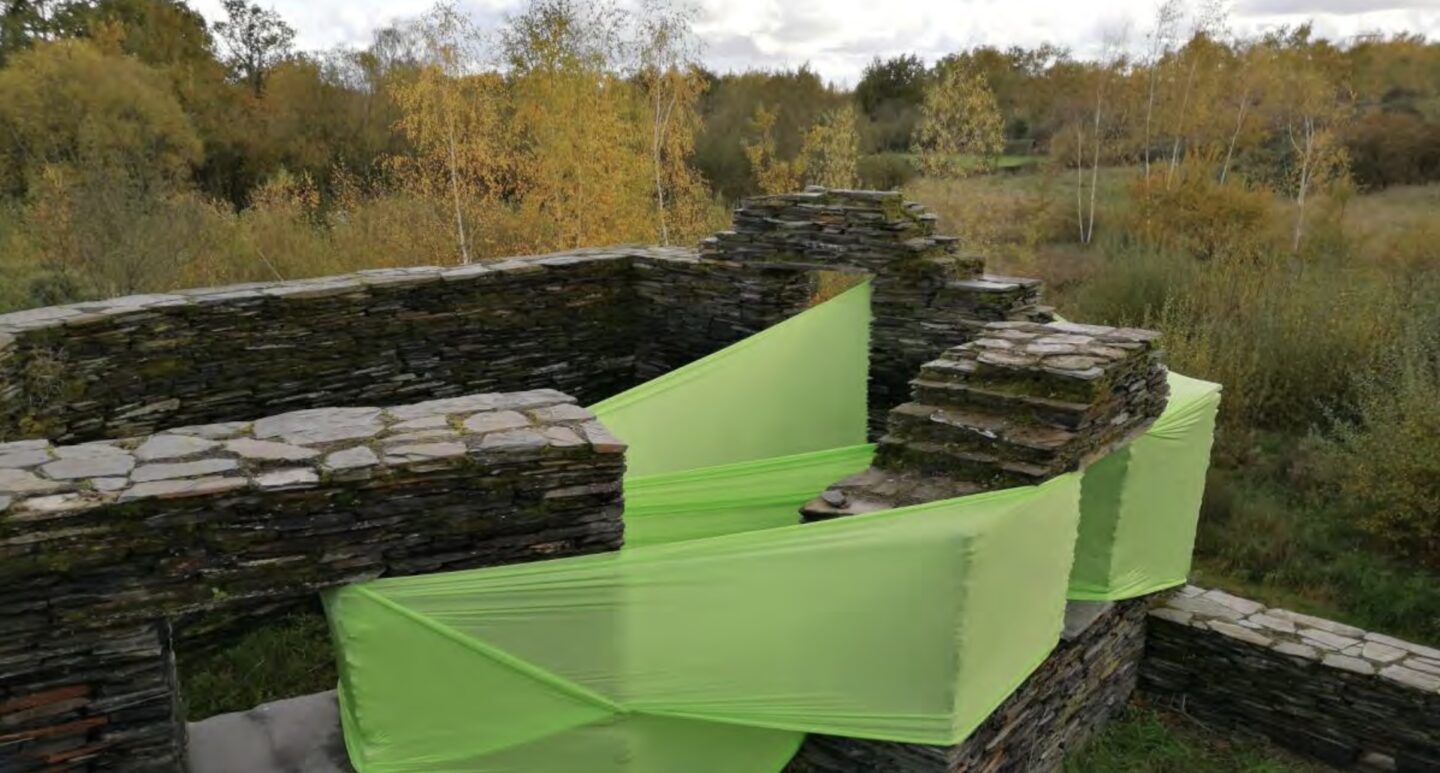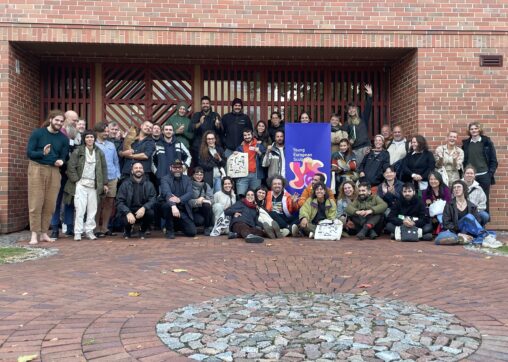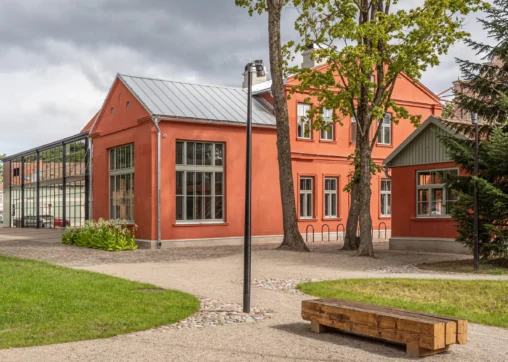Young European Sculpture Approaches 1st European Masterclass TALM, Tours-France.
1_The Young European Sculpture (YES) Project – Presentation
YES is a networking project between higher education sculpture courses in Europe. YES’s ambition is to work towards the relevant professionalization of students who wish to specialize in sculpture and to prefigure joint training in European higher education. The initiative involves TALM Higher School of Art and Design (France) (coordinator), the Academy of Fine Arts of Carrara (Italy), the Art Academy of Latvia (Latvia) along with the Faculty of Fine Arts of the University of Porto (Portugal), with guidance from the Agency Erasmus+ France.
YES Project partners seek to establish a joint annual masterclass in three partner countries (France, Latvia, Portugal) and address challenges related to common curricula and modules in the subject area of sculpture. The project wishes to foster the mutualization and exchange of good pedagogical practices, approaches, and skills in the field of sculpture to create new synergies between the actors of higher education in the sculpture of our countries, which is something that does not exist in sculpture for the moment.
The Young European Sculpture (YES) Project receives a 3-year funding from the Erasmus+ program KA220-HED Cooperation partnerships in higher education (2022-2025).
The project and all its activities will be developed around three major and transversal axes — Materials; Space; and Society and Social practices:
_MATERIALS
If digitalization appeared to be a prelude to a process of progressive dematerialization and virtualization of artistic practices, recent years have seen a progressive convergence between material and digital, thanks to the advent of innovative technologies that allow the material translation of digital projects.
Digital technology offers a space for experimentation, learning, and research, challenging contemporary creation. This promise must be qualified, however, as the ecological footprint of digital technology and, more broadly, of artistic creation is far from neutral, and schools must now demonstrate their capacity for innovation, making sustainability and transition issues part of their teaching methods.
The question of considering artistic work in the economy of the means and in a logic of recyclability, using bio-sourced materials and digital sobriety, has become essential.
_SPACE
“How sculpture can be found all around”. Students are led to investigate considering multiple dimensions (geographical, historical, biological, technical, cultural, social, legal, and political).
Working in public places, for the benefit of the public space, requires technical, theoretical, and methodological skills. Students need to deepen their historical, practical, and aesthetic understanding of artistic forms in relation to public spaces, whether natural or urban.
Public space is not limited to physical spaces: it extends more and more to the media, the web, and social networks: exploring the spaces with increased potentialities.
_SOCIETY AND SOCIAL PRACTICES
Analyzing the social function of art and the artist’s role in the public sphere. Reflecting on the collective and non-specialized uses of art, on the emergence of new audiences, and the redefinition of their place.
Identifying how sculpture and artistic methodology can generate societal innovations and contribute to critical, technological, and philosophical debates.
2_ Program for the 1st European masterclass
_HOSTED BY TALM, FRANCE BETWEEN 8TH AND 14TH MAY 2023
- The 1st masterclass is expected to be hosted on the site of La Rabouilleuse in Tours area. Exceptional site, close to the historic city center of Tours, the place is very involved in a project called the Parliament of the Loire, coordinated by POLAU and supported by the European Union. This project was initiated by Camille de Toledo and narrated in a book entitled The river that wanted to write.
- The masterclass will be an attempt to bring together the new issues of production and reflection in a specific context: the landscape of the banks of the Loire. The main idea, for this first masterclass, is to introduce this site as a situation, as a foundation, of what is thinkable and achievable in such a context, with analytical and critical insights, of the implementation of dialogues and transcriptions around gestures and outlines. It is an attempt to make “society”.
- Since the writings of Bruno Latour, a rereading of Gaston Bachelard’s texts (the four elements) proposes four sensitive points: air, earth, water, fire. Besides visits of museum and La Rabouilleuse, and lectures, the masterclass will consist in four daily workshops, accompanied by TALM teachers from the Sculpture Department:
Water workshop
Led by Cécile Hartmann: you will work on the notion of image as an outline of sculpture and sculptural gesture. “It was near water that I understood best that daydreaming is a universe in emanation, a fragrant breath that comes out of things through the intermediary of a dreamer. If I want to study the life of images of water, I must therefore give back their dominant role to the river and the springs.”
Air workshop
Led by Thierry Mouillé: offers a sequence on the notions of nomadism and protocols, exploring the motion or non-motion of material.
Fire workshop
Led by Vincent Voillat: from elements collected in the landscape, it will be a question of stories, and the construction of conditions necessary to produce situations of otherness with the non-human.
Earth workshop
Led by Cyril Zarcone: modeling with the use of earth and loose materials collected on site. The forms produced will be ephemeral and fragile. You will also explore associations of tastings of regional products.
3_ Eligibility
This Open Call is open to all students of sculpture enrolled at partner institutions in 2022/2023 (1st cycle students at final year and students from 2nd and 3rd cycle). The applicants should fulfill the following requirements:
— Interest in working from the economy of the means; recyclability, bio-sourced materials; etc.;
— Interest in urban and spatial issues;
— Interest in relational and dialogical practices;
— Interest in working with an international team of students; — English language fluency.
4_ Support
The selected students will freely attend the masterclass hosted by TALM during the period between the 8th and 14th of May 2023, including travel, accommodation, and food.
5_ Accessibility and prerequisites
- The masterclass will mostly be hosted in a natural site: the students are expected to work outdoors and bike from different areas in Tours. Each participant will be invited to have portable, light equipment, spare clothes that are resistant to rain, as well as good shoes. A notebook, pencils, erasers are also necessary. At their convenience, participants can bring back light tools related to their practices (cameras, chisel, mallet, sound recorder, etc.).
- Please let us know in the application if you might face accessibility issues that may be related to a disability or any other specific situation in order to arrange suitable solutions.
6_ How to apply
All applications must include the following elements (in English) in a single PDF file:
– A letter of intent (written in English; 400 words) explaining the main motivations and how they are related to the YES program/project;
– Portfolio (5 pages with projects and descriptions explaining the projects and the relation/relevancy to the YES program/project);
– Short biography (max.: 150 words);
– Proof of enrollment at the partner institution 2022/2023 (this can be sent in the original language of the partner institution.
All applications should be made through an online form that will be commu- nicated by your university/school.
7_ Selection criteria
Letter of intent explaining the main motivations and how they are related to the YES program/project (40%):
— Interest in working from the economy of the means; recyclability, bio-sourced materials; etc.
— Interest in urban and spatial issues
— Interest in relational and dialogical practices
— Interest in working with an international team of students.
Portfolio (60%):
Projects and descriptions explaining the projects and the relation/relevancy to the YES program/project (materials, space, society and social practices).
8_ Submission deadline
February 28th, 2023
9_ Communication of the selected students
March 14th, 2023
10_ Process selection
All submissions will be first analyzed by a team from the school/university to which the student is affiliated, and then, an international jury composed of all partners of the YES Project will select the final participants (10 per partner institution).





